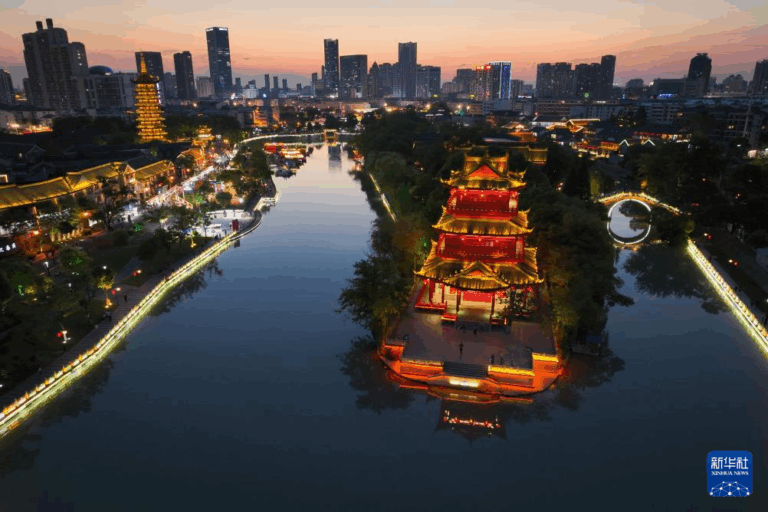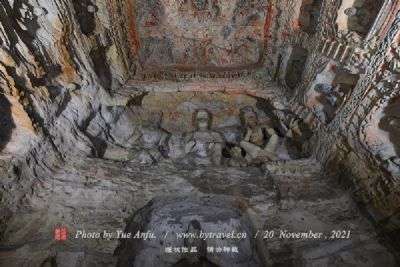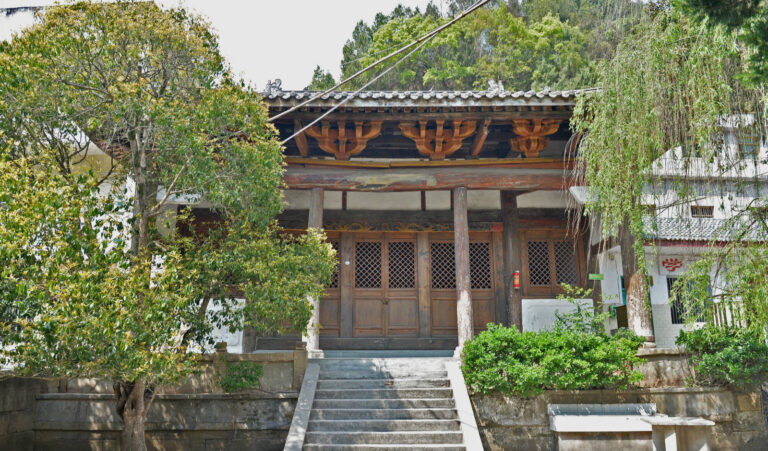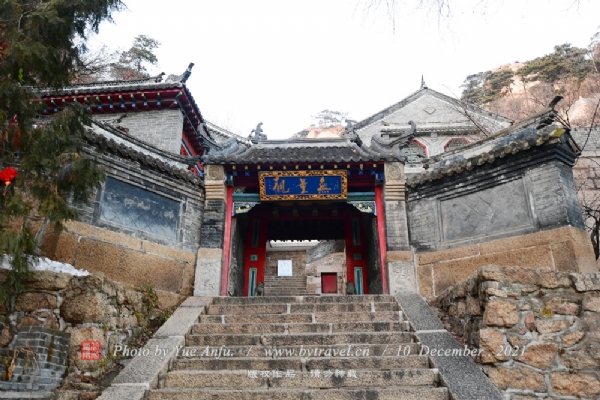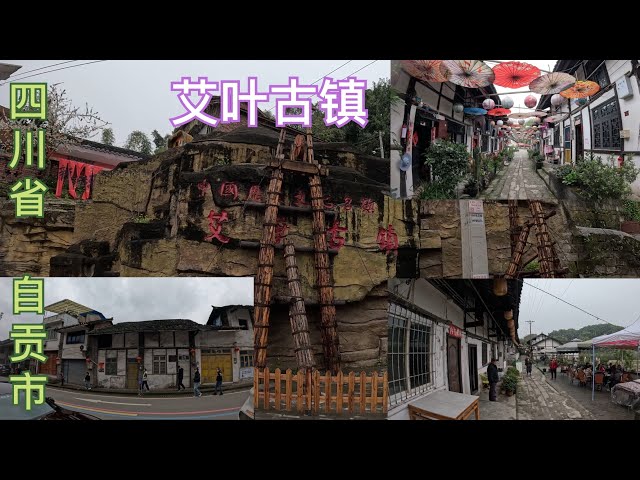Exploring the Timeless Beauty of Jinhua Houwucun Gu Jianzhuqun
An Essential Guide to Visiting Jinhua Houwucun Gu Jianzhuqun
In This Guide
- An Essential Guide to Visiting Jinhua Houwucun Gu Jianzhuqun
- The Rich History of Jinhua Houwucun Gu Jianzhuqun
- Main Highlights: What to See at Jinhua Houwucun Gu Jianzhuqun
- Planning Your Visit: A Practical Guide
- Tickets, Hours, and Booking
- How to Get There
- Local Cuisine and Accommodation
- Frequently Asked Questions
- Final Thoughts on Your Trip
Nestled in the serene landscapes of Yongkang City, Zhejiang Province, lies Houwucun, a village steeped in history and rich in cultural heritage. Founded in 1217 during the Song Dynasty, this quaint settlement boasts nearly 800 years of stories etched into its ancient walls. As one of China’s designated historical and cultural villages, Houwucun is celebrated for its remarkable collection of traditional architecture, primarily from the Ming to the Republic of China eras.
The village’s architectural ensemble is not just a feast for the eyes; it serves as a vital repository of local craftsmanship and artistic expression. Visitors can explore over a thousand well-preserved structures, including ancestral halls and residences that echo the grandeur of bygone eras. The Wu Clan Ancestral Hall stands out with its intricate wood carvings and historical significance, embodying the spirit of the community and the reverence for ancestors that permeates the village.
Houwucun offers a tranquil escape from the hustle and bustle of modern life, inviting travelers to immerse themselves in its stunning scenery—think lotus-filled ponds reflecting the grandeur of ancient buildings, and lush fields harmonizing with the gentle sounds of flowing streams. The village is a living testament to the resilience of tradition amidst the encroachment of contemporary developments, making it a perfect destination for those seeking a glimpse into China’s rich cultural tapestry.
Whether you are an architecture enthusiast, a history buff, or simply in search of a peaceful retreat, Houwucun promises a unique experience steeped in heritage and natural beauty. As you wander through its time-honored paths, you’ll find yourself enchanted by the stories that linger in the air, waiting to be discovered.
The Rich History of Jinhua Houwucun Gu Jianzhuqun
Nestled in the picturesque landscape of Yongkang City, Zhejiang Province, Jinhua Houwucun Gu Jianzhuqun, or Houwu Village Ancient Architecture Group, boasts a rich historical tapestry that dates back nearly 800 years. The village was founded during the Southern Song Dynasty in 1217 and is named after its progenitor, Wu Zhaoqing, a descendant of a prominent official from the Sui Dynasty. This settlement has flourished through centuries, witnessing the ebb and flow of Chinese history.
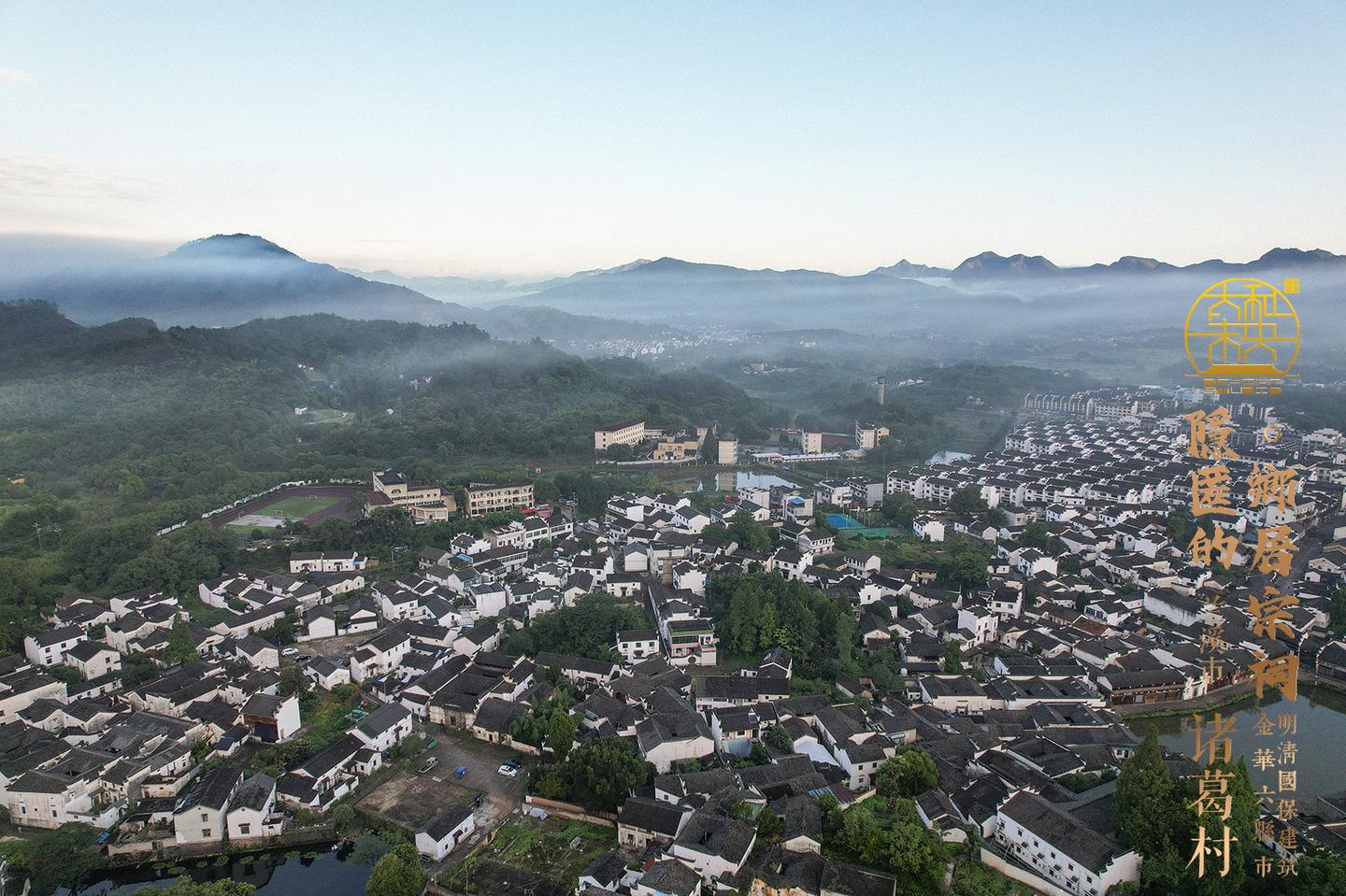
Jinhua Houwucun Gu Jianzhuqun.
Houwu Village is particularly noteworthy for its well-preserved architectural heritage, which includes numerous structures from the Ming and Qing dynasties, as well as the Republic of China period. The village has been recognized as a National Historical and Cultural Village by the Chinese government, highlighting its significance in preserving traditional Chinese culture and architecture. In 2007, it was included in the third batch of historically significant villages, a testament to its cultural and historical importance.
The architectural ensemble of Houwu Village is the largest and most complete of its kind in Yongkang. It features over a thousand ancient buildings, including five well-preserved ancestral halls, with the Wu Clan Ancestral Hall being a standout. Established in 1547, this grand structure showcases exquisite craftsmanship in its wood and stone carvings, reflecting the artistic achievements of its time. Other notable sites include the Chengyi Hall, Lishan Hall, Yiting Hall, and Xiangyang Hall, all of which serve as important cultural landmarks.
The village’s historical significance extends beyond its architecture; it has also been a center of cultural and artistic development. Houwu Village is home to the oldest village-level Wuju opera troupe, which has been performing for over a century, contributing to the local cultural heritage. The annual celebrations and folk activities, such as traditional fairs and performances, breathe life into its historical narrative, allowing visitors to experience the vibrant customs and living traditions of the villagers.
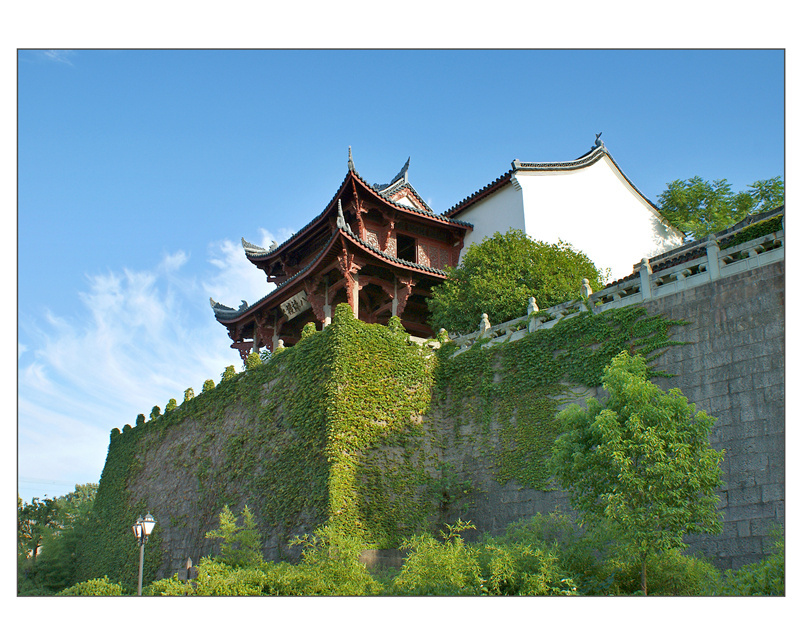
Jinhua Houwucun Gu Jianzhuqun.
In recognition of its cultural wealth and architectural integrity, the Houwu Village Ancient Architecture Group was designated a key cultural relic protection unit by the State Council of China in October 2019. This status not only preserves the village’s historical essence but also ensures that its stories continue to be told for generations to come.
Today, Houwu Village stands as a serene retreat, offering visitors a glimpse into the past through its ancient streets, tranquil ponds, and exquisite architecture. The reflections of the historic buildings in the village’s waters create a stunning visual spectacle, inviting travelers to immerse themselves in the beauty and history of this hidden gem.
Main Highlights: What to See at Jinhua Houwucun Gu Jianzhuqun
Nestled in the southern part of Yongkang, Zhejiang Province, Houwucun (厚吴村) is a hidden gem that offers a glimpse into China’s rich architectural heritage. This ancient village, established in 1217, boasts a remarkable collection of traditional buildings that reflect the artistry and craftsmanship of the Ming, Qing, and Republic of China eras. Here are some of the main highlights of Houwucun:
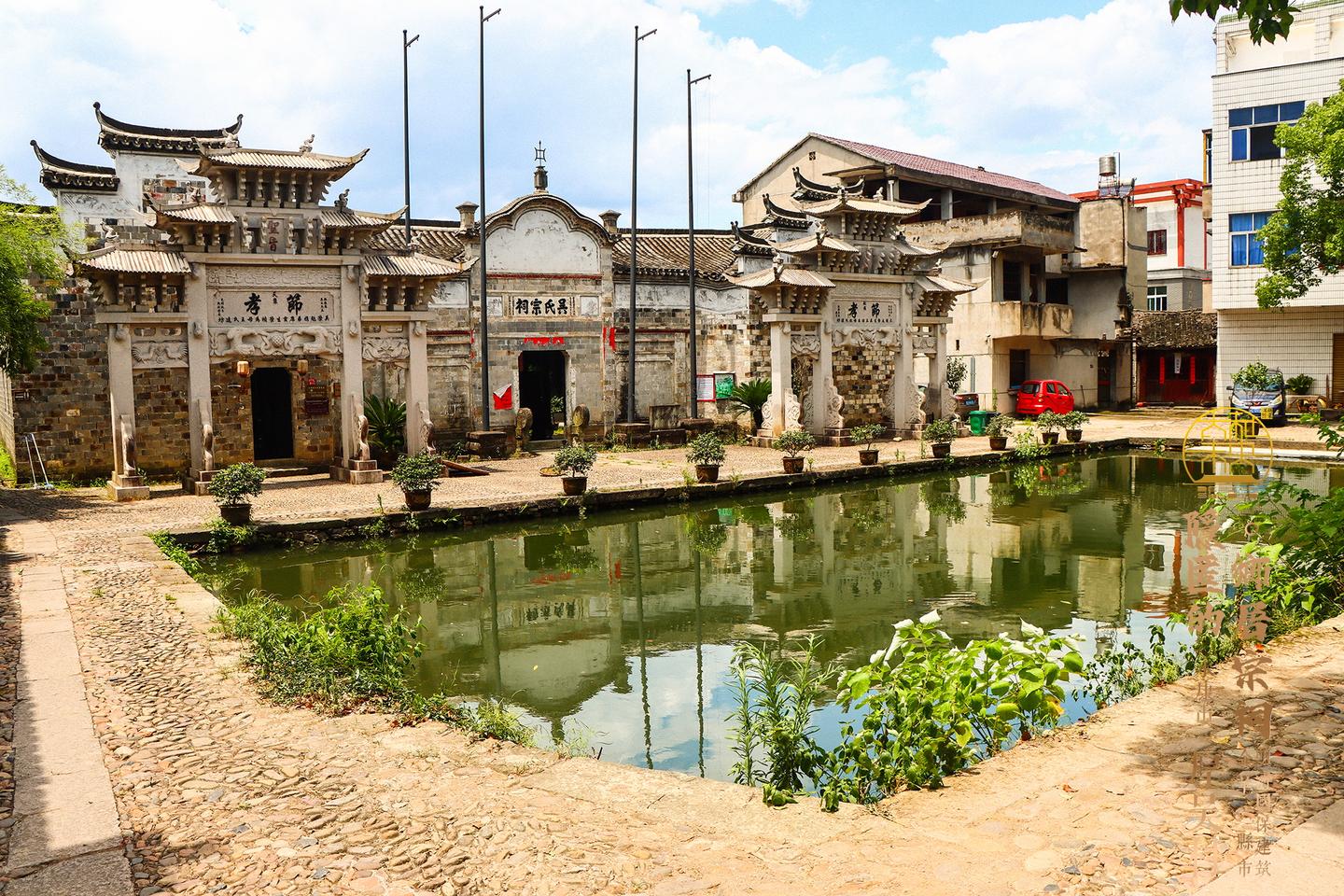
Jinhua Houwucun Gu Jianzhuqun.
Architectural Marvels
Houwucun is renowned for its extensive and well-preserved ancient architecture, which includes over 1,000 structures. Among the most notable are the five grand ancestral halls, such as the Wu Ancestral Hall and the Chengyi Ancestral Hall, each showcasing exquisite wood carvings and intricate stonework that narrate the village’s storied past. The structures not only serve as a testament to the architectural prowess of the era but also offer insight into the cultural and familial traditions of the Wu clan.
Scenic Reflections
The village is set against a picturesque backdrop, with tranquil ponds that beautifully reflect the ancient buildings. This serene environment creates a perfect setting for photography enthusiasts and nature lovers alike. The sight of traditional Chinese rooftops mirrored in the water, surrounded by lush greenery, is nothing short of enchanting.
Cultural Heritage
Houwucun is more than just a collection of old buildings; it is a living repository of local culture. The village hosts vibrant folk festivals and traditional performances, such as the Wuju opera, which showcase the region’s artistic heritage. Visitors can immerse themselves in these cultural experiences, gaining a deeper appreciation for the customs that have been preserved for centuries.
Historical Significance
In recognition of its cultural importance, Houwucun was designated a National Key Cultural Relic Protection Unit in 2019. This accolade highlights the village’s role in preserving the architectural styles and historical narratives from the Ming to the Republic of China periods, making it a vital site for scholars and history buffs.
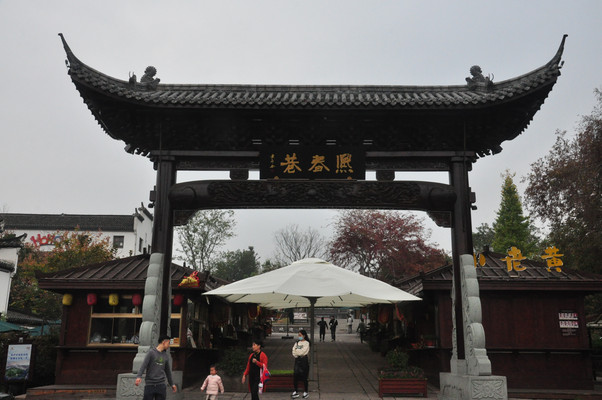
Jinhua Houwucun Gu Jianzhuqun.
Tranquil Countryside
For those seeking a peaceful retreat, Houwucun offers a quiet escape from the bustling cities. The surrounding countryside features lush fields and winding streams, providing an idyllic setting for leisurely walks or picnics. The village’s low commercial activity ensures a serene atmosphere where visitors can truly relax and connect with nature.
Accessibility and Hospitality
Located just a short drive from the urban centers of Jinhua and Yiwu, Houwucun is easily accessible for day trips. The village maintains a welcoming ambiance, with local residents eager to share their stories and traditions with visitors, further enhancing the experience of exploring this ancient enclave.
Whether you’re drawn by its architectural beauty, cultural richness, or simply the tranquility of rural life, Houwucun is a captivating destination that promises a memorable journey through China’s past.
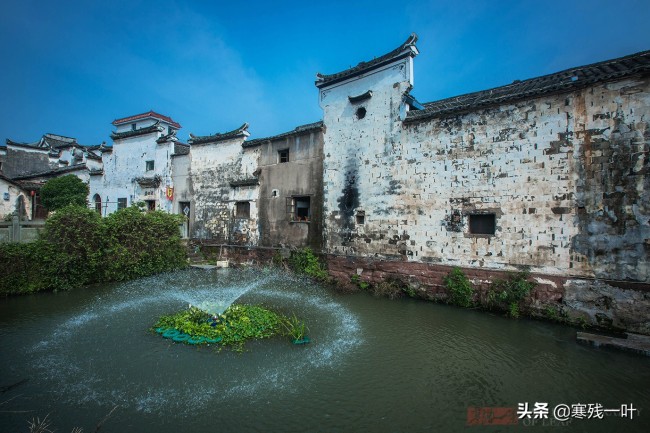
Jinhua Houwucun Gu Jianzhuqun.
Planning Your Visit: A Practical Guide
Practical Guide to Visiting Jinhua Houwucun Gu Jianzhuqun
Nestled in the serene landscapes of Zhejiang Province, the ancient village of Houwucun (厚吴村) offers a captivating glimpse into China’s architectural heritage. With roots dating back to the Song Dynasty (1217 AD), this traditional village is renowned for its well-preserved structures that showcase the artistic styles of the Ming and Qing dynasties. If you’re planning a visit, here’s everything you need to know for a smooth and enriching experience.
Getting There
Transport Options:
– By Train: The closest major city is Jinhua, which is accessible via high-speed trains from Shanghai, Hangzhou, or other major cities. Upon arrival at Jinhua Station, you can take a taxi or local bus to Houwucun.
– By Car: If you prefer driving, Houwucun is approximately a two-hour drive from Hangzhou. Follow the signs to Yongkang and then to Qianchang Town, where the village is located.
Best Time to Visit
To fully appreciate Houwucun’s beauty, consider visiting during the spring (March to May) or autumn (September to November) when the weather is pleasant, and the surrounding countryside is particularly picturesque. The village’s vibrant flora during these seasons enhances its charm, making it ideal for photography.
Entry Details
Admission:
Visiting Houwucun is free of charge, allowing you to explore its ancient streets and structures without the burden of an entrance fee. However, it’s essential to respect the local customs and the integrity of the buildings.
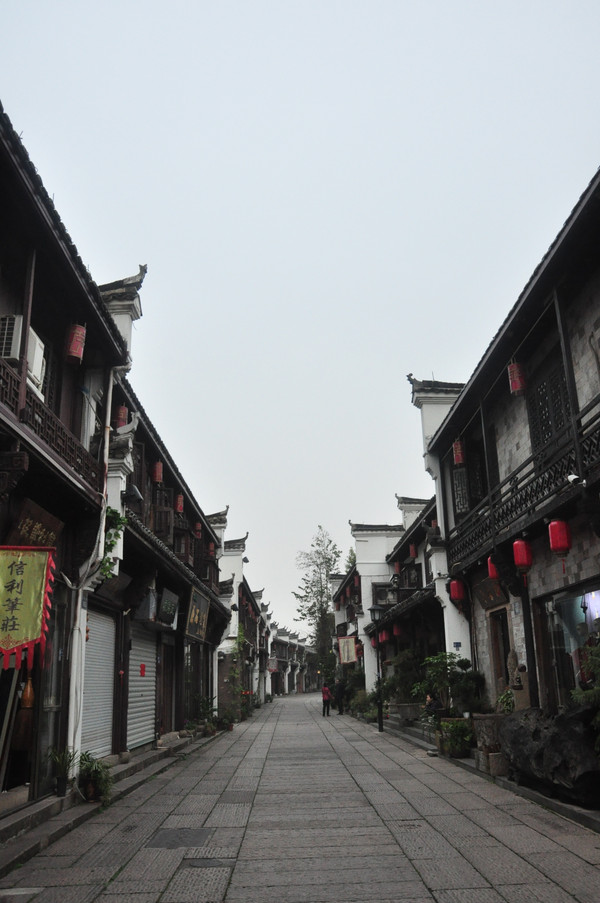
Jinhua Houwucun Gu Jianzhuqun.
Accommodation
While Houwucun offers a quaint atmosphere, options for overnight stays are limited. Nearby Yongkang has several hotels and guesthouses ranging from budget to mid-range. Some recommended places include:
– Yongkang Fengqi Hotel: A comfortable stay with good amenities.
– Jinhua Jinjiang Hotel: Offers a more upscale experience with a convenient location.
What to See and Do
- Explore Ancient Architecture:
- The village is home to over a thousand ancient structures, including traditional residences, ancestral halls, and temples. Notable sites include the Wu Ancestral Hall, famous for its intricate wood carvings and historical significance.
-
Take time to admire the architectural details, such as stone carvings and brick paintings that reflect the craftsmanship of past eras.
-
Enjoy Cultural Events:
-
If your visit coincides with local festivals, you may have the opportunity to witness traditional performances, including folk dances and operas that embody the rich cultural heritage of the region.
-
Stroll Along the Canals:
-
A gentle walk along the village’s canals provides a serene setting to appreciate the reflections of ancient buildings in the water. This is particularly enchanting at sunset.
-
Visit Local Artisans:
-
Engage with local artisans who practice traditional crafts such as bamboo weaving and wood carving. You might even get a chance to try your hand at these crafts.
-
Discover the Scenic Surroundings:
- Take a hike in the nearby hills for panoramic views of the village and the surrounding countryside. The area is known for its picturesque landscapes, providing ample opportunities for nature photography.
Tips for a Smooth Visit
- Respect Local Customs: When visiting temples and ancestral halls, maintain a respectful demeanor. Speaking quietly and refraining from touching sacred artifacts is essential.
- What to Wear: Comfortable shoes are a must for exploring the village’s cobbled streets. Dress in layers to adjust to the changing temperatures, especially if you plan to hike in the surrounding areas.
- Stay Hydrated: Bring plenty of water, especially during warmer months, as options for refreshments within the village can be limited.
- Cash is King: While some establishments may accept digital payments, it’s advisable to carry cash for small purchases or interactions with local vendors.
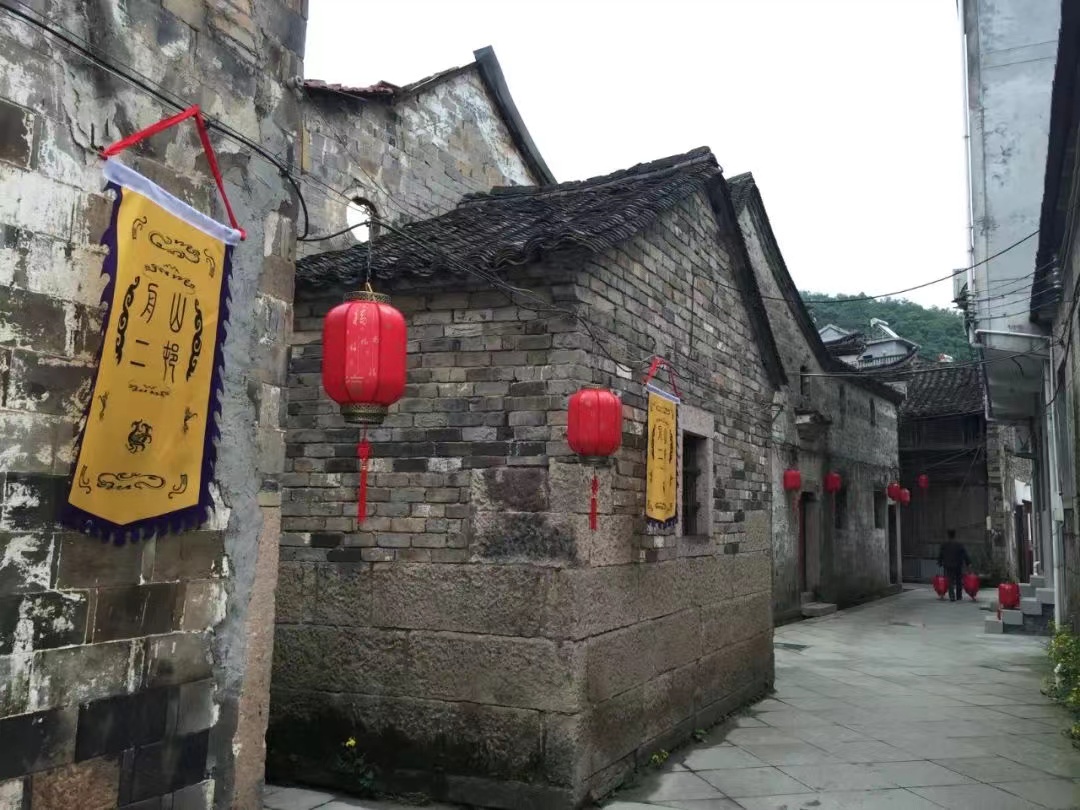
Jinhua Houwucun Gu Jianzhuqun.
Local Cuisine
While Houwucun itself may not have extensive dining options, nearby Yongkang offers a variety of local dishes to try. Be sure to sample:
– Yongkang Noodles: A delightful local specialty that showcases the region’s culinary flair.
– Tea: The surrounding areas produce excellent teas, so don’t miss the chance to sip some freshly brewed local varieties.
Conclusion
Houwucun is not just a destination; it’s a journey back in time. With its rich history, stunning architecture, and tranquil atmosphere, it promises a uniquely immersive experience. Whether you’re a history buff, an architecture enthusiast, or simply looking to escape the hustle and bustle, Houwucun is an enchanting stop in the heart of Zhejiang Province.
Tickets, Hours, and Booking
Visiting Houwucun Ancient Architecture Complex in Jinhua, Zhejiang, is an enriching experience that immerses you in history and local culture. The good news for travelers is that access to this charming village is completely free!
Entry Details
- Admission Cost: Free of charge
- Operating Hours: Open 24 hours a day, allowing you to explore at your own pace.
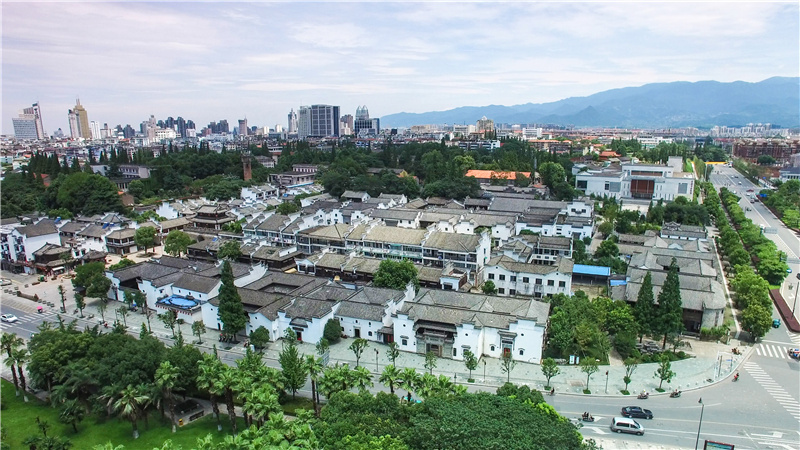
Jinhua Houwucun Gu Jianzhuqun.
Getting There
Houwucun is located in Yongkang City, making it easily accessible by various means:
– By Car: If you’re driving from Jinhua or nearby cities, you can navigate directly to Houwucun using GPS. The village is located near the intersection of Huan Village North Road.
– Public Transport: Regular buses run from Jinhua to Yongkang, and from there, you can take a taxi or ride-sharing service to reach the village.
Parking
There is parking available near the village entrance, making it convenient for those who prefer to drive.
Tips for Your Visit
- As the village is surrounded by more modern developments, be prepared to walk a short distance from the parking area to the ancient architecture.
- Given its historical significance, it’s advisable to respect the local customs and the integrity of the ancient buildings while exploring.
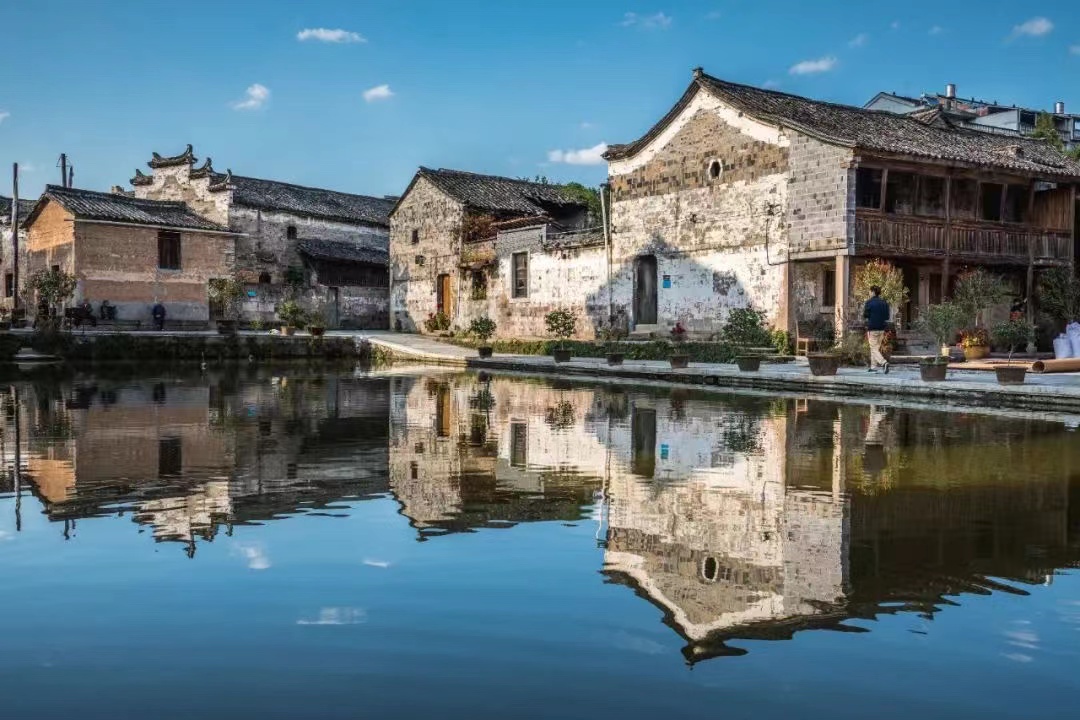
Jinhua Houwucun Gu Jianzhuqun.
Additional Experiences
While there is no entry fee, consider supporting local artisans by purchasing handmade crafts or enjoying traditional meals at nearby eateries, which offer a taste of authentic Yongkang cuisine.
With its serene atmosphere and rich history, Houwucun promises a delightful experience that captures the essence of traditional Chinese culture without the hustle and bustle of commercialized tourist spots.
How to Get There
Getting to Jinhua Houwucun Gu Jianzhuqun (厚吴村古建筑群) is a journey steeped in history, offering visitors a chance to explore one of China’s most preserved ancient villages. Here’s how to navigate your way to this enchanting destination.

Jinhua Houwucun Gu Jianzhuqun.
Getting There
By Train:
The most convenient way to reach Houwucun is via high-speed train. The nearest major railway station is in Jinhua, which is well connected to major cities like Shanghai, Hangzhou, and Beijing. Once you arrive at Jinhua Railway Station, you can take a local bus or taxi to reach Houwucun. The journey from Jinhua to Houwucun typically takes around 30 minutes by car.
By Bus:
If you prefer traveling by bus, there are frequent services from Jinhua city center to Yongkang, where Houwucun is located. Buses depart regularly throughout the day, and once you arrive in Yongkang, you can take a local taxi or a ride-share service to the village.
By Car:
For those opting to drive, you can rent a car either from the Jinhua railway station or from any major city in Zhejiang Province. The village is approximately 30 kilometers from Jinhua and is accessible via the G60 expressway. The drive is scenic, allowing you to enjoy the beautiful landscapes of Zhejiang.
Local Transportation:
Once you arrive in Houwucun, the village itself is best explored on foot. Its narrow streets and ancient architecture are best appreciated at a leisurely pace. Bicycles are also available for rent in nearby areas, providing a unique way to experience the surrounding countryside.
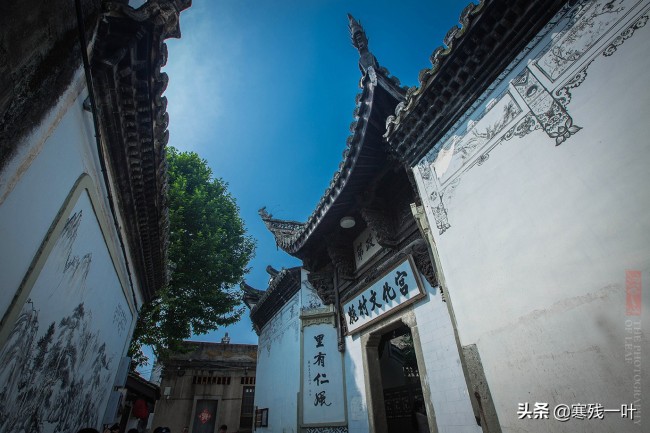
Jinhua Houwucun Gu Jianzhuqun.
Parking
If you’re driving, there are parking facilities near the entrance of Houwucun. However, be aware that the village’s interior is pedestrian-only, so you will need to park and walk into the historic area.
Accessibility
Houwucun is relatively easy to navigate, but be prepared for some uneven paths and steps, especially around the ancient buildings and traditional houses. Comfortable walking shoes are highly recommended.
Tips for Travelers
- Plan Ahead: While public transport is frequent, it’s advisable to check the schedule in advance, especially during weekends or holidays when it may vary.
- Cash on Hand: While some places may accept mobile payments, having cash can be beneficial for small purchases in the village.
- Learn Basic Mandarin: Knowing a few phrases in Mandarin can enhance your experience, as English is not widely spoken in this rural area.
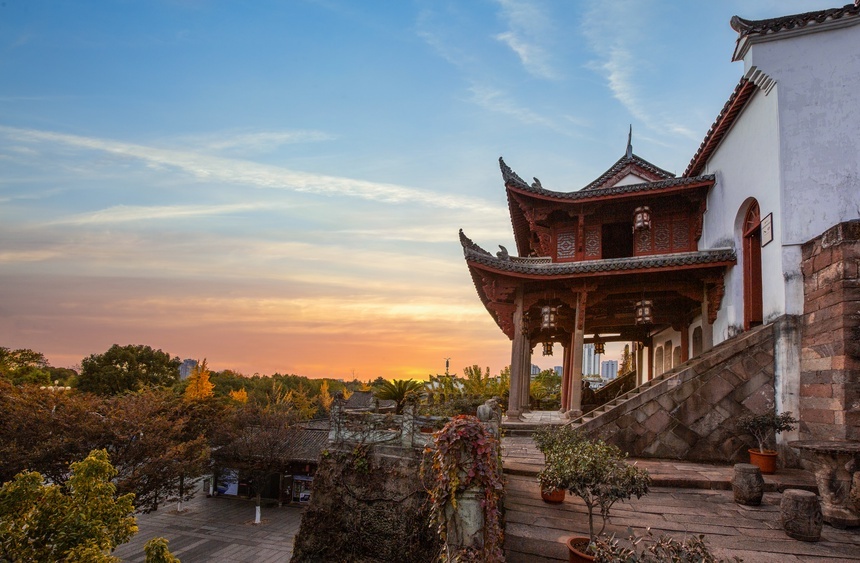
Jinhua Houwucun Gu Jianzhuqun.
With these transportation tips, you’re well-equipped to embark on your journey to Houwucun, where history and culture await in every corner. Enjoy your visit!
Local Cuisine and Accommodation
When visiting the enchanting Houwucun Ancient Architecture Group in Jinhua, Zhejiang, travelers will find not only a rich historical tapestry but also delightful culinary experiences and comfortable lodging options that enhance their stay.
Dining Delights
While Houwucun may not boast a plethora of high-end restaurants, it offers an authentic taste of local cuisine that is both delicious and affordable. Here are some must-try dining spots:
-
Fangxi Thai Cuisine: Located close to Houwucun, this restaurant serves delectable Thai dishes that have won the hearts of many visitors. The flavors are vibrant and reflect the authentic taste of Thailand, making it a great spot for those seeking something a bit different from traditional Chinese fare.
-
Cao Da Jie Restaurant: Known for its homestyle cooking, this eatery serves a variety of local specialties at reasonable prices. Dishes such as bamboo shoots with pork are popular among both locals and tourists, providing a true taste of the region.
-
Local Snack Stalls: Don’t miss out on sampling street food around Houwucun. Look for stalls offering traditional snacks like tofu flowers and sticky rice cakes. These quick bites are perfect for a light snack while exploring the village.
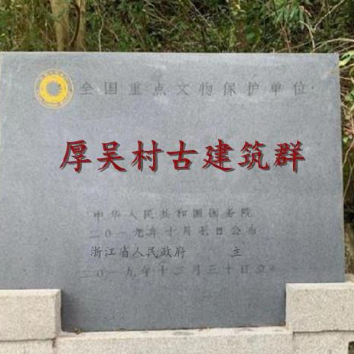
Jinhua Houwucun Gu Jianzhuqun.
Accommodation Options
For a truly immersive experience, consider staying in one of the charming accommodations that reflect the region’s cultural heritage:
-
Houwucun Homestays: Several homestays in the village offer a cozy and authentic experience. These accommodations allow you to enjoy a peaceful night’s sleep surrounded by ancient architecture. Many hosts provide breakfast featuring local ingredients, perfectly blending comfort with cultural immersion.
-
Jinjiang Hotel: For those seeking a more upscale experience, the Jinjiang Hotel is a highly-rated option. This five-star establishment offers modern amenities while ensuring guests have a relaxing stay. It’s conveniently located near local attractions, making it easy to explore Houwucun and beyond.
-
Yongkang Hotels: If you prefer to stay in a more urban setting, the nearby Yongkang city offers a variety of hotels catering to different budgets. Options range from budget-friendly inns to luxurious hotels, ensuring that every traveler finds suitable accommodations.
Tips for Your Stay
-
Book in Advance: Given the unique charm of Houwucun, accommodations can fill up quickly, especially during peak travel seasons. It’s advisable to book your stay in advance to secure the best options.
-
Explore Local Markets: After enjoying a meal, take some time to wander through local markets where you can find handmade crafts and local delicacies to take home as souvenirs.
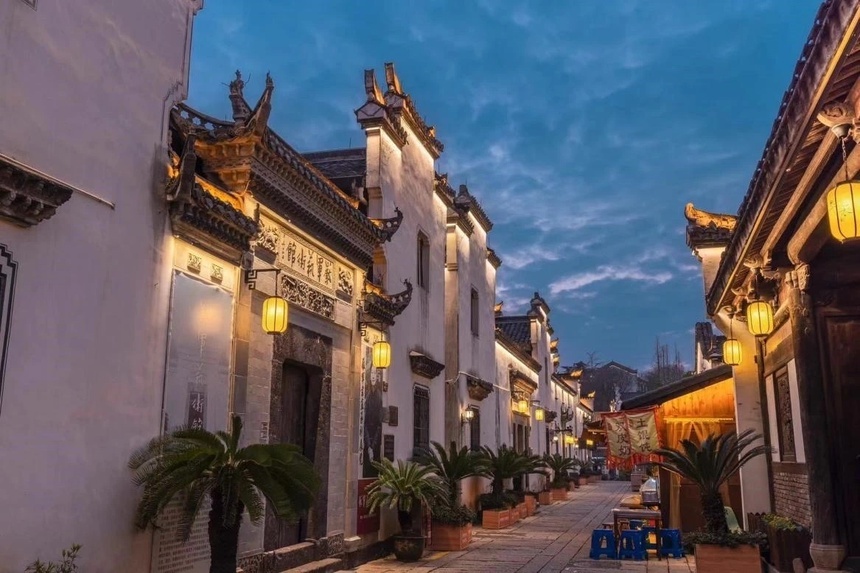
Jinhua Houwucun Gu Jianzhuqun.
Houwucun is not just a destination for history enthusiasts but also a place where culinary delights and comfortable stays await. Embrace the local flavors and hospitality during your visit to this picturesque ancient village.
Frequently Asked Questions
Frequently Asked Questions
1. What is the historical significance of Houwucun Village?
Houwucun Village, located in Yongkang City, Zhejiang Province, has a rich history dating back to 1217. It is recognized as a traditional village in China and boasts one of the largest and most well-preserved ancient architectural groups in the region, with structures from the Ming and Qing dynasties, as well as the Republic of China period.
2. How do I get to Houwucun Village?
Houwucun Village can be accessed by various means of transportation. If you are traveling from Jinhua City, consider taking a bus or taxi, which are readily available. For those driving, the village is conveniently located with parking options available near the visitor center.
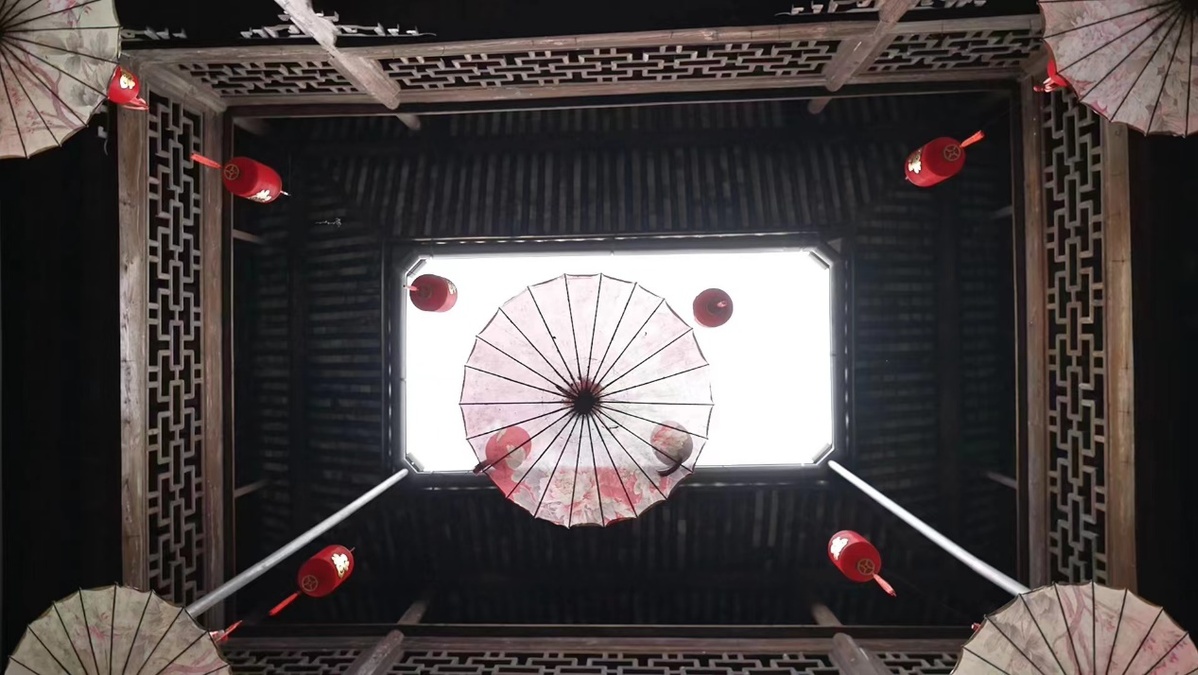
Jinhua Houwucun Gu Jianzhuqun.
3. Is there an entrance fee to visit Houwucun Village?
No, visiting Houwucun Village is free of charge. This makes it an attractive destination for travelers looking to explore historical sites without incurring entrance fees.
4. What are the main attractions in Houwucun Village?
Key attractions include the impressive Wu Clan Ancestral Hall, numerous ancient residences, and traditional buildings adorned with exquisite wood and stone carvings. The village also features picturesque ponds and scenic views, perfect for photography enthusiasts.
5. Are there accommodations available near Houwucun Village?
Yes, there are several accommodation options in and around Houwucun Village, including quaint homestays and hotels. It is advisable to book in advance, especially during peak travel seasons, to secure the best options.
6. What local cuisine should I try while visiting?
While exploring Houwucun Village, be sure to sample local delicacies at nearby farmhouse restaurants. Dishes like bamboo shoots with pork are popular and offer a taste of the region’s culinary heritage.
7. What cultural activities can visitors participate in?
Visitors to Houwucun can engage in traditional cultural activities such as local festivals, folk performances, and workshops showcasing crafts like bamboo weaving and wood carving. These experiences provide a deeper understanding of the village’s cultural richness.
8. What should I keep in mind while visiting Houwucun Village?
Respect local customs and traditions during your visit. Maintain a quiet demeanor when exploring sacred sites like ancestral halls, and be mindful of the surrounding environment to help preserve the village’s historical charm.
Final Thoughts on Your Trip
As you wander through the enchanting lanes of Houwucun Village, you are not merely a visitor but a witness to centuries of history, artistry, and culture. This hidden gem in Zhejiang province invites you to immerse yourself in its well-preserved architecture, tranquil landscapes, and vibrant traditions. The intricate wood carvings and historic ancestral halls echo the stories of generations past, while the serene surroundings provide a perfect backdrop for reflection and appreciation of rural life.
In a world increasingly dominated by modernity and commercialization, Houwucun stands resilient, offering a glimpse into a simpler, more authentic way of life. Here, you can escape the hustle and bustle, savor local delicacies, and engage with the warm-hearted villagers who proudly keep their heritage alive. Whether you are an avid historian, a photography enthusiast, or simply seeking a peaceful retreat, Houwucun promises an experience that will enrich your spirit and leave lasting memories.
So, pack your bags and set out to explore this picturesque village, where every corner reveals a piece of history and every moment offers a chance to connect with the essence of Chinese culture. Houwucun awaits, ready to share its beauty and stories with you.
